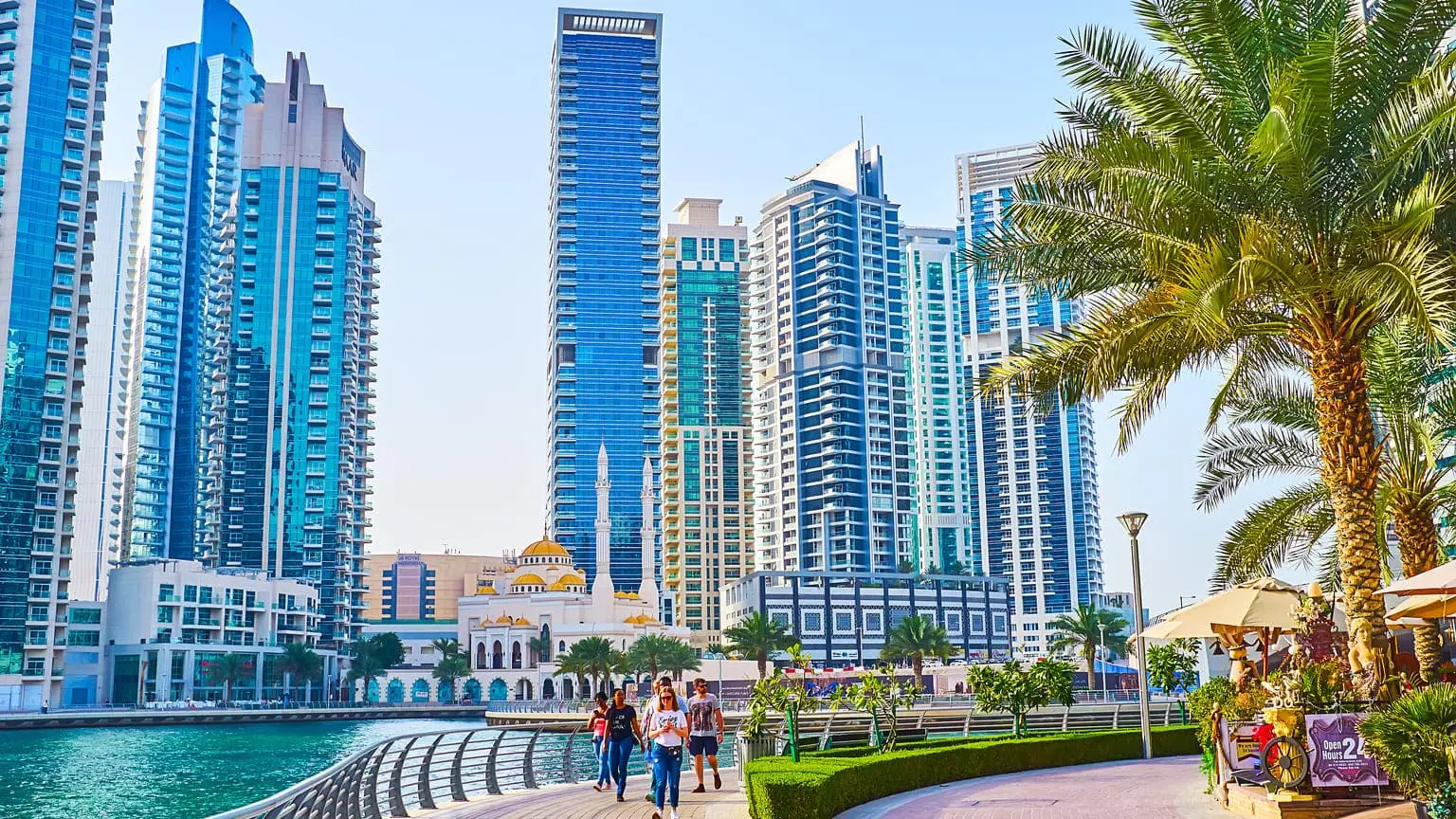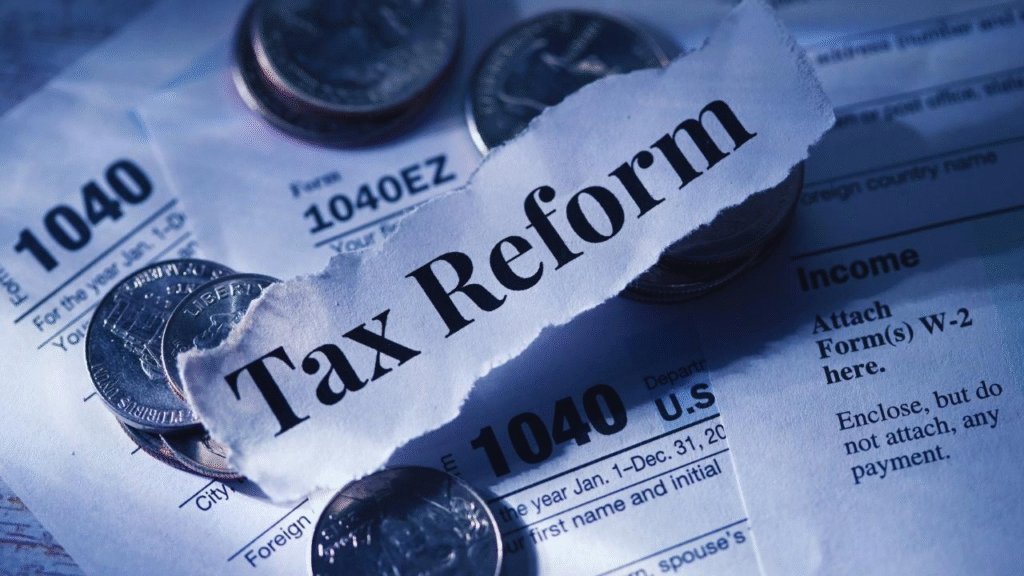
Dubai Property: Dubai’s real estate market in 2025 remains a global powerhouse, with 99,000 transactions worth AED 326.7 billion in H1 and projected 5-9% price growth, per Dubai Land Department (DLD) data. Cross-emirate property transfers, involving properties bought or sold across UAE emirates like Dubai, Abu Dhabi, and Sharjah, are gaining traction as investors diversify portfolios.
While Dubai offers no personal income tax, capital gains tax, or VAT on residential leases and first sales, corporate tax (9% above AED 375,000) and the Domestic Minimum Top-up Tax (DMTT, 15% for multinationals) introduced in January 2025 impact corporate entities.
Qualifying Free Zone Persons (QFZPs) in Jebel Ali Free Zone enjoy 0% corporate tax if non-qualifying mainland income is below 5% or AED 5 million. Transfer fees, varying by emirate (e.g., 4% in Dubai, 2% in Abu Dhabi), and new tax regulations add complexity. Below are six key tax changes affecting cross-emirate property transfers in 2025, ensuring expats and investors optimize returns in zones like JVC and Dubai Marina.
Dubai Property, Starting January 2025, the UAE Federal Tax Authority (FTA) mandates unified reporting for property transfer fees across emirates to enhance transparency, per Federal Decree-Law updates. Dubai’s 4% DLD transfer fee (e.g., AED 80,000 on a AED 2 million JVC apartment) contrasts with Abu Dhabi’s 2% (AED 40,000) and Sharjah’s 2%.
Previously, emirates had inconsistent reporting, complicating cross-emirate deals. Now, buyers and sellers must submit transfer fee details via the FTA’s e-portal within 30 days, including property value and emirate-specific fees. Non-compliance risks AED 10,000 fines. For a Dubai-to-Abu Dhabi transfer, budget AED 120,000 total fees (4% + 2%) and ensure FTA filings to avoid penalties, leveraging Dubai REST app integration for streamlined reporting.
The 9% corporate tax, effective since June 2023, applies to entities involved in cross-emirate property transfers if taxable income exceeds AED 375,000, per Federal Decree-Law No. 47. A Dubai-based company selling a AED 3 million property in Sharjah, yielding AED 500,000 profit, faces 9% tax (AED 11,250) on profits above AED 375,000 unless structured as a QFZP.
QFZPs in Jebel Ali Free Zone enjoy 0% tax if mainland income (e.g., Sharjah rentals) is below 5% or AED 5 million. Expats using corporate entities for cross-emirate deals must file tax returns by September 30, 2025, for 2024 income. Use QFZP structures or hold properties individually to avoid tax, and consult a tax advisor for FTA compliance.

The Domestic Minimum Top-up Tax (DMTT), effective January 1, 2025, imposes a 15% minimum tax on multinational enterprises (MNEs) with global revenues over EUR 750 million in two of the last four years, per OECD Pillar Two guidelines. An MNE transferring a AED 5 million Dubai Marina office to Abu Dhabi pays 15% DMTT on profits if UAE taxes fall below 15%, topping up the 9% corporate tax.
For a AED 1 million gain, this adds AED 60,000 tax (15% – 9% on AED 1 million). SMEs and individuals are exempt, making personal ownership tax-free. Expats should structure cross-emirate transfers via individual ownership or QFZPs to bypass DMTT, verifying revenue thresholds with a tax consultant.
New transfer pricing (TP) rules, aligned with OECD guidelines since April 2023, require cross-emirate property transactions between related parties (e.g., a Dubai company selling to its Abu Dhabi subsidiary) to meet the arm’s length standard, per Ministerial Decision No. 97. If a Dubai entity sells a AED 2 million JVC property to a related Abu Dhabi entity below market value, the FTA can adjust taxable income, increasing tax liability.
From Q4 2025, unilateral Advanced Pricing Agreements (APAs) allow pre-approval of TP terms, reducing disputes. Expats using corporate structures must maintain TP documentation and file via the FTA, or hold properties individually to avoid TP scrutiny, ensuring compliance with arm’s length pricing.
Commercial property transfers across emirates now face standardized 5% VAT reporting, effective January 2025, per FTA updates. A Dubai company selling a AED 4 million office in Sharjah to an Abu Dhabi entity incurs AED 200,000 VAT, plus Dubai’s 4% DLD (AED 160,000) and Sharjah’s 2% fee (AED 80,000). Residential properties remain zero-rated (0% VAT) for first sales and exempt for leases.
VAT-registered entities can recover input VAT, but non-registered buyers bear the cost. Expats should prioritize residential properties for cross-emirate transfers to avoid VAT, register with FTA for VAT recovery if dealing in commercial properties, and budget 6-11% for combined fees and VAT.
The UAE’s 193 DTAs, including with the U.S., UK, and India, mitigate home-country tax risks for expats in cross-emirate transfers. A U.S. expat’s Dubai company selling a AED 3 million Abu Dhabi property with AED 600,000 profit pays 9% UAE corporate tax (AED 20,250 above AED 375,000), offset via IRS Form 1118 against U.S. taxes. Obtain a UAE Tax Residency Certificate (TRC, AED 1,000, 3-5 days) if spending 183+ days in the UAE to leverage DTAs, per FTA rules.
Indian investors comply with the Liberalised Remittance Scheme ($250,000 limit) and report assets on ITR-2/3. Muslim investors account for 2.5% Zakat (e.g., AED 15,000 on AED 600,000). Use individual ownership or QFZPs to minimize UAE tax and consult cross-border advisors for DTA benefits.
These changes harmonized reporting, corporate tax, DMTT, transfer pricing, VAT standardization, and DTAs add 6-11% to cross-emirate transfer costs, impacting ROI in a market with 6-10% yields and 8-15% capital gains. Dubai’s 90-95% occupancy and 10-12% rent growth in 2025 drive demand, but corporate entities face increased scrutiny.
Individual ownership avoids corporate tax and DMTT, while QFZPs offer 0% tax. RERA escrow accounts and the First-Time Home Buyer Program’s 5% discounts (up to AED 5 million) mitigate costs. Infrastructure like Metro Blue Line and Al Maktoum Airport, plus 25 million tourists, boost zones like Dubai South, per DLD’s AED 761 billion 2024 transactions.
Hold properties individually to avoid 9% corporate tax and 15% DMTT. Use QFZP entities in Jebel Ali for 0% tax, ensuring mainland income compliance. Prioritize residential properties for 0% VAT. File transfer fees via FTA’s e-portal and maintain TP documentation for corporate deals. Leverage DTAs with a TRC, using IRS Form 1118 for U.S. expats or equivalent for others.
Budget for 4% DLD, 2% commissions (+5% VAT), and emirate-specific fees (2-4%). Negotiate fee splits in off-plan deals and verify RERA compliance via Mollak. Muslim investors account for Zakat; Indian investors ensure LRS compliance. Partner with UAE tax firms for FTA adherence.

Dubai’s Economic Agenda D33 and 2040 Urban Master Plan fuel 6.2% GDP growth, with cross-emirate investments rising due to varied fee structures (e.g., Abu Dhabi’s 2% vs. Dubai’s 4%). Oversupply risks (76,000 units) are offset by high absorption and RERA protections. These tax changes align the UAE with OECD standards, maintaining its investor-friendly reputation. By mastering these rules, investors secure tax-efficient returns in a dynamic market.
Harmonized transfer fee reporting, corporate tax, DMTT, transfer pricing, VAT standardization, and DTAs are six key tax changes impacting cross-emirate property transfers in 2025. With strategic planning individual ownership, QFZP structures, VAT recovery, and DTA utilization investors can minimize costs and maximize 6-10% yields and 8-15% capital gains in Dubai’s tax-advantaged real estate market.
read more: Dubai Real Estate: 6 Service Charge Increases Affecting Rental Yields
